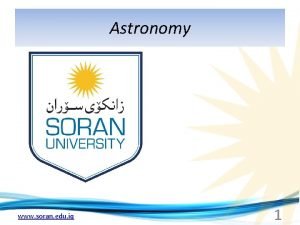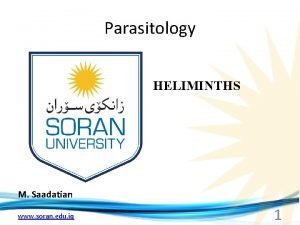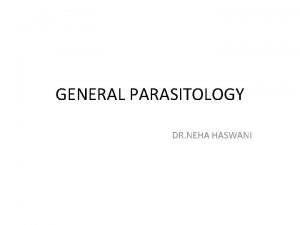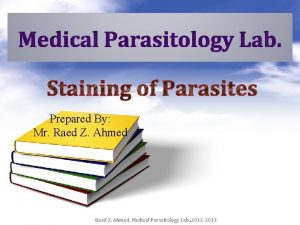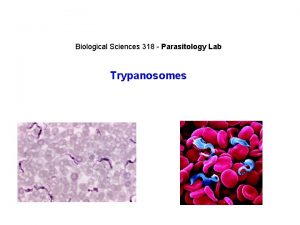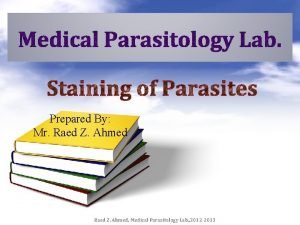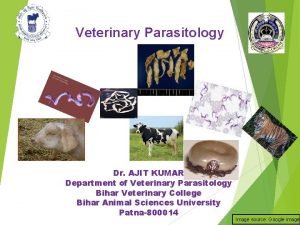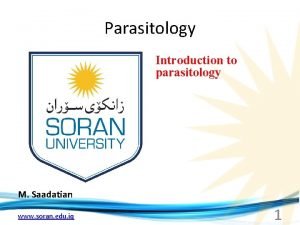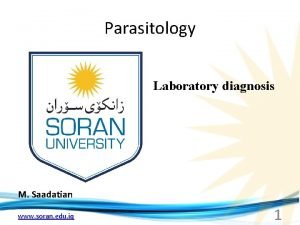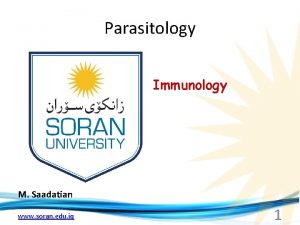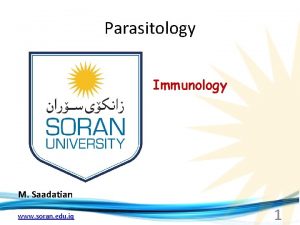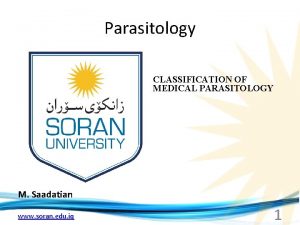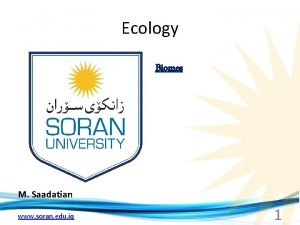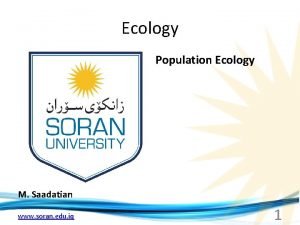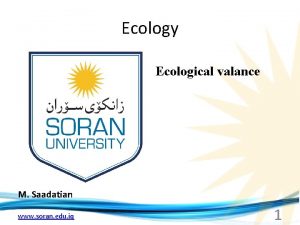Parasitology HELIMINTHS M Saadatian www soran edu iq









- Slides: 9

Parasitology HELIMINTHS M. Saadatian www. soran. edu. iq 1

HELIMINTHS www. soran. edu. iq

• The heliminthic parasites are multicellular • The helminthes of importance to human beings are divided into three main groups with the peculiarities of the different categories: Nematoda, Cestoda, Trematoda. www. soran. edu. iq

CLASSIFICATION OF MEDICALLY IMPORTANT PARASITES www. soran. edu. iq

ARTHROPODS Arthropods, which form the largest group of species in the animal kingdom, are characterized by having a bilaterally symmetrical and segmented body with jointed appendages. They have a hard exoskeleton, which helps enclose and protect the muscles and other organs. An open circulatory system, with or without a dorsally situated heart pumps the blood (hemolymph) via arteries to the various organs and body tissues. Blood is returned to the heart through body spaces known as hemocoeles. In addition, respiratory, excretory, and nervous systems are present. www. soran. edu. iq

Arthropods affect the health of humans by being either direct agents for disease or agents for disease transmission. The arthropods of medical importance are found in Classes Insecta, Arachnida, and Crustacia which have their own distinguishing features. In Class insecta the body is divided into head, thorax, and abdomen, with one pair of antennae. Diseases like malaria, yellow fever, onchocerciasis, and trypanasomiasis are primarily transmitted by insects. www. soran. edu. iq

SUMMARY A parasite is an organism which lives in/on the body of a host. A host is that which harbors the parasite. There is usually some association such as mutualism, commensalisms, or parasitism between the parasite and the host. This association may produce a variety of effects and the host usually tends to react to it. www. soran. edu. iq

SUMMARY Symbiosis: “Any two organisms living in close association, commonly one living in or on the body of the other, are symbiotic, as contrasted with free living. ” Commensalism: One partner benefits but the other is not hurt. Mutualism: Both partners benefit. Parasitism: One partner (the parasite) harms or lives on the expense of the other (host). www. soran. edu. iq

SUMMARY Medical Parasitology focuses on parasites which cause disease in humans. Parasitic diseases are in their majority the diseases of the poor around the globe. Poverty is a major risk factor for disease but disease is also a major contributor to poverty. In general, the protozoa, helminthes and arthropods are the most commonly studied and the most important parasites in medical parasitology. www. soran. edu. iq
